Command Decision

Brief Synopsis
Cast & Crew
Sam Wood
Clark Gable
Walter Pidgeon
Van Johnson
Brian Donlevy
Charles Bickford
Film Details
Technical Specs

Synopsis
In 1943, at a meeting of the Ministry of Information in London, Major General Roland Goodlow Kane of the U.S. Army Air Corps is troubled by news of heavy losses incurred by his subordinate, Brigadier General K. C. "Casey" Dennis, the commander of the American Bombardment Division in England. After two solid days of bombing, during which Casey has ordered his pilots beyond the limits of the defense line of the fighter planes, forty-eight planes have been downed, a record loss. Kane fears that the massive casualties will provoke the congressmen of the Military Affairs Committee, who are scheduled to visit the division, to sharply curtail funding and thus endanger the very existence of the Army Air Corps, which Kane has fought hard to build. Consequently, Kane wires Casey to maintain a low loss quotient during the congressmen's visit. When Kane's message is followed by the news that Brigadier General Clifton I. Garnet is arriving that afternoon, war correspondent Elmer "Brocky" Brockhurst assumes that Cliff has been sent to relieve Casey of his command. Casey's determination to complete "Operation Stitch" at any cost rankles Capt. Lucius Malcolm Jenks, a pilot who also happens to be the nephew of Military Affairs Committee member Congressman Arthur Malcolm, and so Jenks breaks rank and defies Casey's orders. Jenks's outburst is followed by the arrival of Kane and Cliff. When Casey reports that he has scheduled another massive bombing mission for that day, Kane, alarmed, cancels the visit from the Congressional Committee and orders a security blackout. Accused by Kane of overstepping his command, Casey defends himself by displaying the model of a new German jet bomber that will render the Allied forces defenseless. Casey explains that Operation Stitch was designed to obliterate plants that manufacture the Nazi jets, but that weather conditions dictate that the mission must be completed in three days, before the cloud cover moves in. When Kane learns that the day's raid on the Schweinhofen plant has resulted in the lost of 290 planes and 520 men, he becomes furious that Casey approved such a drastic operation before the meeting of the Armed Forces Allocation Committee. Upon returning from the raid, Colonel Edward "Ted" Rayton Martin, the squadron leader, as well as Casey's close friend and Cliff's brother-in-law, reports that they missed Schweinhofen and bombed a torpedo plant instead. Fearing that Kane will cancel the mission if he learns of the mistake, Ted advises Casey to lie, but the honor bound Casey tells Kane the truth. Pressured by the enormous losses and the day's failure, Kane denies permission for a third day of bombing. When Brocky senses that the officers are not telling him the full story, Kane shows him the secret memorandum on the mission and asks for his support. Although Major Desmond Lansing, a civilian advisor and former World War I officer, agrees with Casey's position, Kane remains unconvinced. Notified that only two more days of clear skies remain, Casey fervently defends the strategic importance of Operation Stitch. Later, in private, Kane confides to Casey that the mission may not only threaten his commission but the very existence of the Air Corps, then reluctantly green lights it. Soon after, the Congressional Committee arrives unexpectedly, causing Kane to cancel the mission. When, to appease the querulous Malcolm, Kane proposes awarding Jenks a medal, Casey coolly informs his superior that he has confined Jenks to his quarters for insubordination and will charge him with desertion unless Kane allows the pilots to complete their mission at Schweinhofen the next day. Kane finally relents, and Brocky, overhearing his orders, writes a stirring story about the undertaking. The next morning, as Ted takes to the skies to lead his men on their perilous journey, word comes that his wife has just given birth to a boy. Later, at the ceremony planned to honor Jenks and appease Malcolm, news comes that the mission has been successful, but at the cost of Ted's life. Malcolm reacts insensitively to Ted's loss, but Jenks refuses the medal and runs from the room. Shaken, Casey excuses himself and seeks solitude in the War room. With only one day remaining to complete the operation, Kane relieves Casey of his command and appoints Cliff in his place. After deliberating for several excruciating hours, Cliff realizes that Casey detested making decisions that would result in life or death, and then gives the order to compete Casey's objective and attack the last target of Operation Stitch. As Casey prepares to fly home and console Ted's widow, he is notified that he has been appointed to a B-29 command, a high military honor.

Director

Sam Wood
Cast

Clark Gable

Walter Pidgeon

Van Johnson

Brian Donlevy

Charles Bickford

John Hodiak

Edward Arnold

Marshall Thompson

Richard Quine
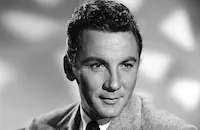
Cameron Mitchell

Clinton Sundberg
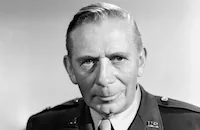
Ray Collins
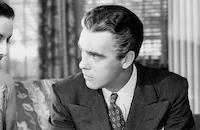
Warner Anderson
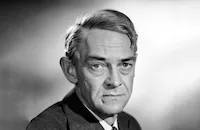
John Mcintire

Moroni Olsen

John Ridgely
Michael Steele
Edward Earle
Mack Williams

James Millican
Wilson Wood
Arthur Walsh
J. Lewis Smith
William Leicester
Henry Hall
Sam Flint
William Cabanne
William Neff
Dennis Dengate
Fred Datig Jr.
Clarke Hardwicke
Johnny Michaels
Bill Murphy
Don Garner
Jimmy Zaner
Buddy Swan
Martin Lamont

Holmes Herbert
Bill Mcivor
William "bill" Phillips
Robin Short

Gregg Barton
Alvin Hammer
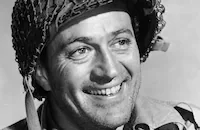
Don Haggerty
Bruce Cowling
Ray Barons

Barry Nelson
David Holt
Jimmy Horne Jr.
George Backus
Jr. George Offerman

Douglas Walton
Pete Martin
Stephen Wayne
William Tannen
John James
Robert Cunningham
Lane Allan
John Cannon
William Lechner
James Dale

Harlan Warde
Robert Manning
John Mcguire
Joel Allen
Tay Dunn
Russell Hoyt
Glenn Mullen
Tony Shay
Robin Hughes
Tom Handley
Campbell Copelin
Frank Scannell
George Melford
Bert Davidson
Colin Kenny
David Newell
Carey Harrison
Frank Mayo
William Nind
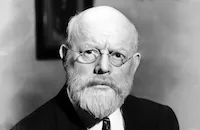
Howard Mitchell
Bob Milton
Jack Bonigul
Crew
James K. Brock
Jack Dawn
Sidney Franklin
George Froeschel
Cedric Gibbons
A. Arnold Gillespie
Ed Hubbell
Lloyd Isbell
Bert Kopperl
Harold F. Kress
William R. Laidlaw
Bob Martin
Les Martinson
Urie Mccleary
Jack D. Moore
Warren Newcombe
Gottfried Reinhardt
Harold Rosson
Miklos Rozsa
Douglas Shearer
Al Shenberg
Sid Sidman
Edwin B. Willis

Photo Collections
Videos
Trailer
Hosted Intro
Film Details
Technical Specs

Articles
Command Decision
Based on a play by William Wister Haines, Command Decision is an intriguing look at the hard decisions commanders have to make that often result in the unavoidable deaths of brave American soldiers. The mission in question in Command Decision is very similar to "Black Thursday," a raid on German factories that occurred on October 14, 1943 and resulted in the loss of over 600 men. Gable had plenty of experience to bring to his role as the hard-nosed commander. He joined the Air Force in 1942, shortly after his wife, the lovely comedienne Carole Lombard, was killed in a plane crash. Like other stars that enlisted in the war, men like Jimmy Stewart, Henry Fonda, and Robert Taylor, Gable excelled outside the comforts of Hollywood. He quickly rose in rank from lieutenant to major and received the Distinguished Flying Cross and Air Medal for flying several bombing missions over Germany.
Director: Sam Wood
Producer: Sidney Franklin,
Screenplay: George Froeschel, William Wister Haines, William R. Laidlaw
Cinematography: Harold Rosson
Editor: Harold F. Kress
Art Direction: Cedric Gibbons, Urie McCleary
Music: Miklos Rozsa
Cast: Clark Gable (Brig. General K.C. "Casey" Dennis), Walter Pidgeon (Maj. Gen. Roland Goodlaw Kane), Van Johnson (Technical Sergeant Immanuel T. Evans), Brian Donlevy (Brig. Gen. Clifton I. Garnet), Charles Bickford (Elmer Brockhurst).
BW-112m. Close captioning.
by Scott McGee

Command Decision
Quotes
Trivia
Clark Gable had an officer's commission of Major in the Army Air Corps during WWII.
'Mitchell, Cameron' , who plays bombardier Lieutenant Ansel Goldberg, actually was a bombardier during WWII.
Notes
The film's producing credits read: "Produced by Sidney Franklin in Association with Gottfried Reinhardt." According to an April 1948 Hollywood Reporter news item, Clark Gable urged M-G-M to buy William Wister Haines's novel Command Decision (Boston, 1947) as a starring vehicle for himself in the role of "General Casey Dennis." A May 1947 New York Times news item notes that according to the terms of Haines's deal with M-G-M, the author would receive $100,000 as a down payment for his novel. If the novel was produced as a play by October 1947, however, Haines would be awarded fifteen percent of the weekly stage gross, thus raising his payment to $300,000. The play opened on Broadway on October 1, 1947. According to an April 1947 Los Angeles Times news item, Robert Taylor was originally slated to star with Gable. An April 1948 M-G-M News item notes that Tom Drake was to play the role of "Captain Tom Jenks," the young pilot who defies Casey's orders. By May 1948, an M-G-M News press release stated that Michael Steele was to play the pilot, who was now named "Lucius Jenks." According to a February 17, 1949 Hollywood Reporter news item, the Washington, D.C., premiere of the film was attended by Vice President Barkley, Secretary of State Dean Acheson, the Air Force Chief of Staff and several other dignitaries. An August 1949 Los Angeles Times news item reported that a British reviewer for the Reynolds News Service called the film an "insult to British audiences" and complained that it gave the impression that Americans won the war by precision bombing. On March 3, 1949, Gable recorded a radio version of the story for broadcast over the NBC network. This was the first pre-recorded commercial show to be broadcast over the network from Hollywood, acccording to a February 1949 Daily Variety news item.

Miscellaneous Notes
Released in United States Winter February 1949
Released in United States Winter February 1949















